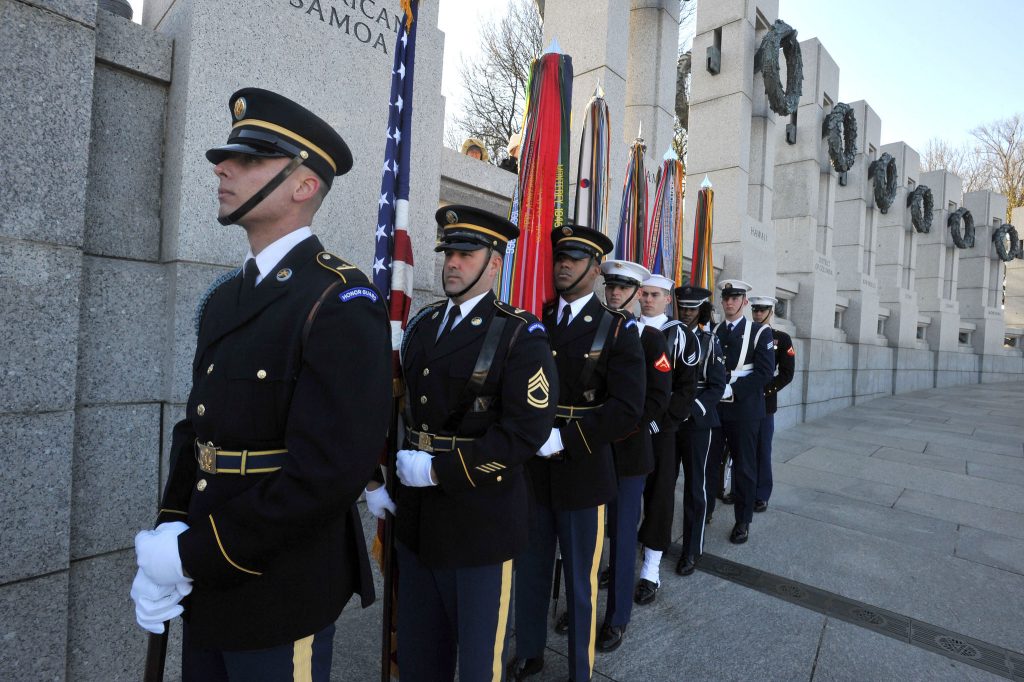VA Hospitals Struggle to Address Suicide, Substance Abuse Amongst Veterans
Veterans are at greater risk for suicide and substance abuse. Sometimes the hardest the part is asking for help.

In the US, today marks Veterans Day. It’s a day nations around the world celebrate the military service of men and women – but for some, adjusting to civilian life afterwards can be difficult.
“I was actually homeless at one point,” says Harold Dukes a veteran who now works at the Dingell VA Hospital training vets for the workforce and finding them jobs. “Back in 2008 I got into recovery and in just chasing my recovery I got into the vet-to-vet peer support program. ”
Click on the player above hear WDET’s Russ McNamara report on how the VA is addressing the veteran suicide epidemic.
There are 18.5 million veterans in the US, including 1.5 million of them dealing with substance abuse issues. And substance abuse can lead to life-threatening issues. For 2017, the year that the most recent data is available, roughly 17 veterans per day died from suicide, nearly 1.5 times the rate for other adults.
The road from the battle field back home can be long and treacherous. But for many vets, the hardest part is the first step.
Veterans “fought for our freedom, [yet] they’re still in bondage by the pain and the sacrifice they have made.” – Dr. Katrina BeShears, Dingell VA Hospital
From the battle field to the trauma center
Veterans “fought for our freedom, and here oftentimes they’re still in bondage by the pain and the sacrifice they have made for us,” says substance Abuse Expert Dr. Katrina BeShears with the Dingell Veterans Administration Hospital in Detroit. “Folks who’ve never been in combat don’t know what it’s like to be so close to your comrades and then watch them die and have to go back to civilian life and pretend everything is okay. But there are scars with that.”
That’s where some vets turn to drugs or alcohol to cope with the stresses of returning to a normal life. The U.S. Department of Veterans Affairs says for those men and women who served in Iraq and Afghanistan, about 1 in ten develop a substance abuse disorder.
Once substance abuse comes into play, things can get dangerous for veterans and those around them.
“When you’ve got drugs or alcohol in the mix, people can make decisions impulsively they wouldn’t ordinarily make. That decision can affect multitudes of lives of those around them,” says Tara Consolino, a Director of Social Work at the Dingell VA Medical Center.
“I hope to be that bridge for other veterans.” – Harold Dukes, Dingell VA Hospital
Finding help and getting through the door
In recent years, the VA has made a push to limit access to firearms for veterans who have addiction and mental health issues. That includes using trigger or gun locks and being clever.
“Taking that key, hiding it in an ice cube, so that way in order to unlock it they can really buy some time and think about that decision. And what we find is when you take that impulsivity away. Fortunately most people see there’s a reason to live,” says Consolino.
When it comes to treating veterans, it can be tough to get them in the door. Some have transportation issues. Others are reluctant to come in for help. Plus there have been some high-profile scandals – like in Phoenix, where dozens of veterans died waiting to be seen by a doctor at the VA there.
If you or someone you know is in crisis, call the Suicide Prevention Hotline at 1-800-273-8255. Veterans can press ‘1’ for special services.
“So when you see all of these negative press releases, you know or Phoenix this or situations like that. Why would you want to come in for care for that?” says Consolino.
Once in the door, the addiction and mental health specialists at the VA do their best to cater to the vet’s needs.
“We have veterans who come in who just want to test the waters with our programming, and we have veterans who are determined to get sober and change their life” says Dr. BeShears.
And that’s key too. The veteran has to want help. Dukes knows firsthand that one person can make a difference.
“There was a therapist out in Battle Creek, his name was Cliff Lewis and I remember he shared some of his recovery story with us,” Dukes says. “And I kinda thought to myself, if that guy can do it, then maybe I can too. And I hope to be that bridge for some of the other veterans that’s coming in.”
Support the news you love.
Here at WDET, we strive to make our journalism accessible to everyone. As a public media institution, we maintain our journalistic integrity through independent support from readers like you. If you value WDET as your source of news, music, and conversation, please consider making a gift today. Even $5 a month helps!
